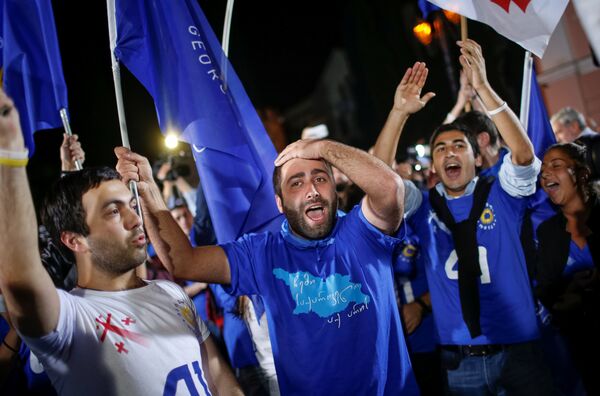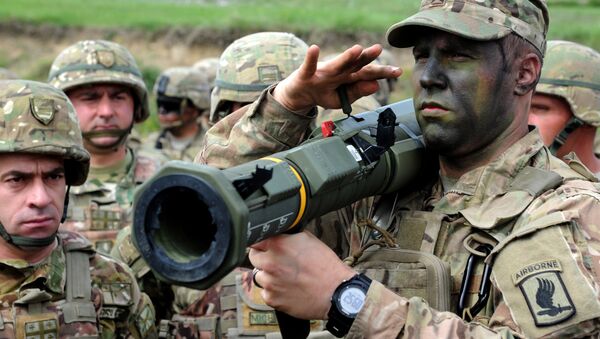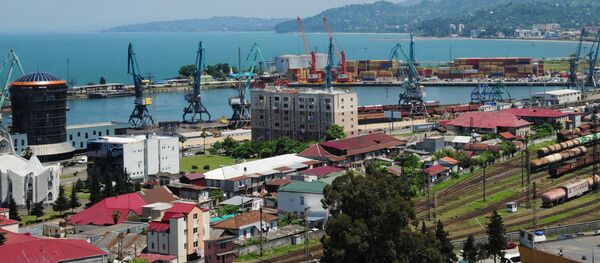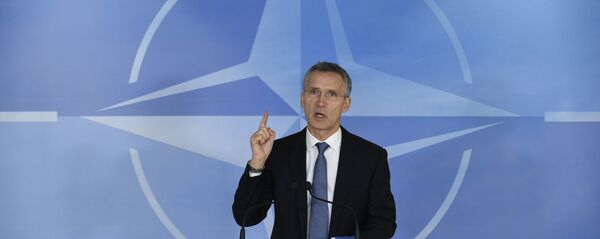"Tbilisi's NATO accession remains a priority for the US. We could verify on the field the engagement of the American embassy during [the] Georgian elections," Guglielmo Picchi, Italian MP and Head of OCSE PA observers to Georgia, told Sputnik.
#NATO Parl.Assembly Delegation Head @paoloalli: #Georgia has reaffirmed its status as the leader of democratic transformation in this region
— MFA of Georgia (@MFAgovge) October 9, 2016
"There were plenty of American observers. Lots of financial help. USAID was everywhere."
"The US are investing several million dollars," he added.
The US$5 billion Victoria Nuland admitted the US spent in Ukraine over 20 years "to give Ukrainians the government they deserve" springs to mind.
In Georgia too, US engagement reaches back to the middle/late 1990s. Already in 2003, it led to the "Rose Revolution", the first of such CIA-orchestrated "color revolutions."
Both of Georgia's main parties, Georgian Dream and the United National Movement are strongly committed to EU and NATO membership.
What this US engagement on Russia's border boils down to is no secret.
"Tbilisi's NATO accession remains a priority for the US because it is a means to enter into an area of traditional Russian influence, into a former Soviet territory," Mr. Picchi told Sputnik.
Nor is the prospect of Georgia joining the EU less problematic, given the many unresolved crisis facing Brussels, from the euro to Greece or the refugees — to name a few.
Mr. Picchi, who met with Georgian Prime Minister Giorgi Kvirikashvili, in the run-up to the elections, is aware of the uncertainties facing Tbilisi.
"Georgia's will by no means be an easy path, the EU is in crisis. And current geopolitics does not allow for a quick NATO membership. In the end, it will be up to western countries to decide whether or not Georgia will join them in the EU and in the NATO," Mr. Picchi said.
As for the prospects of Georgia-Russia bilateral relations, Picchi is mildly optimistic:
"Georgian Prime Minister Kvirikashvili will continue his little steps policy towards Moscow. Trade with Russia has resumed. Witness the exportation of Georgian wine, important for Georgian economy."
The Elections
Georgian Dream, the ruling party led by Prime Minister Giorgi Kvirikashvili, won the elections by a large margin: 48.6 percent v 27.14 percent.

Former president Saakashvili's United National Movement was defeated.
Saakashvili, who is currently governor of the Odessa region in Ukraine, has recently expressed his desire to return to his country, where, as things stand, an 11 year prison sentence for corruption would await him.
The pro-Russian Alliance of Patriots also made it to parliament, having just reached the 5% threshold.
Of the 25 parties that ran for office, only three made it through.
"A few incidents notwithstanding," concludes Mr. Picchi, "this has been a fair election, one that ends the phase of Georgian instability."
The question of regional stability should Georgia really join NATO and the EU, however, seems far from being resolved.




